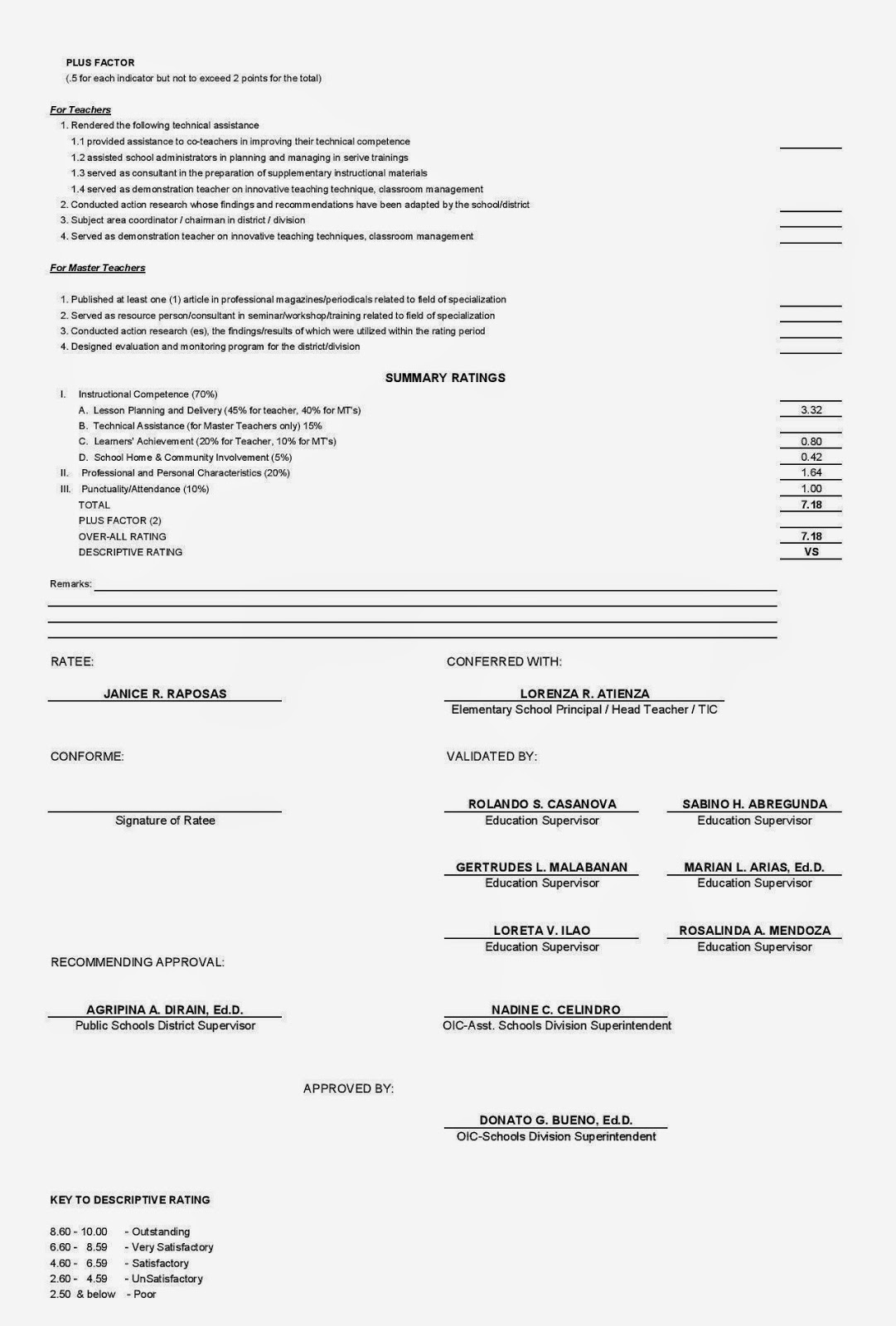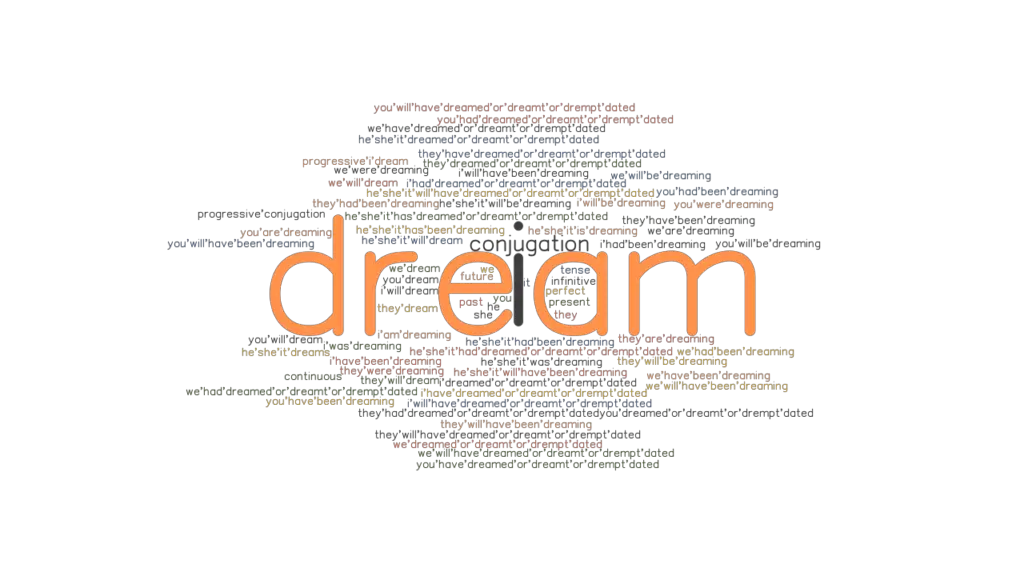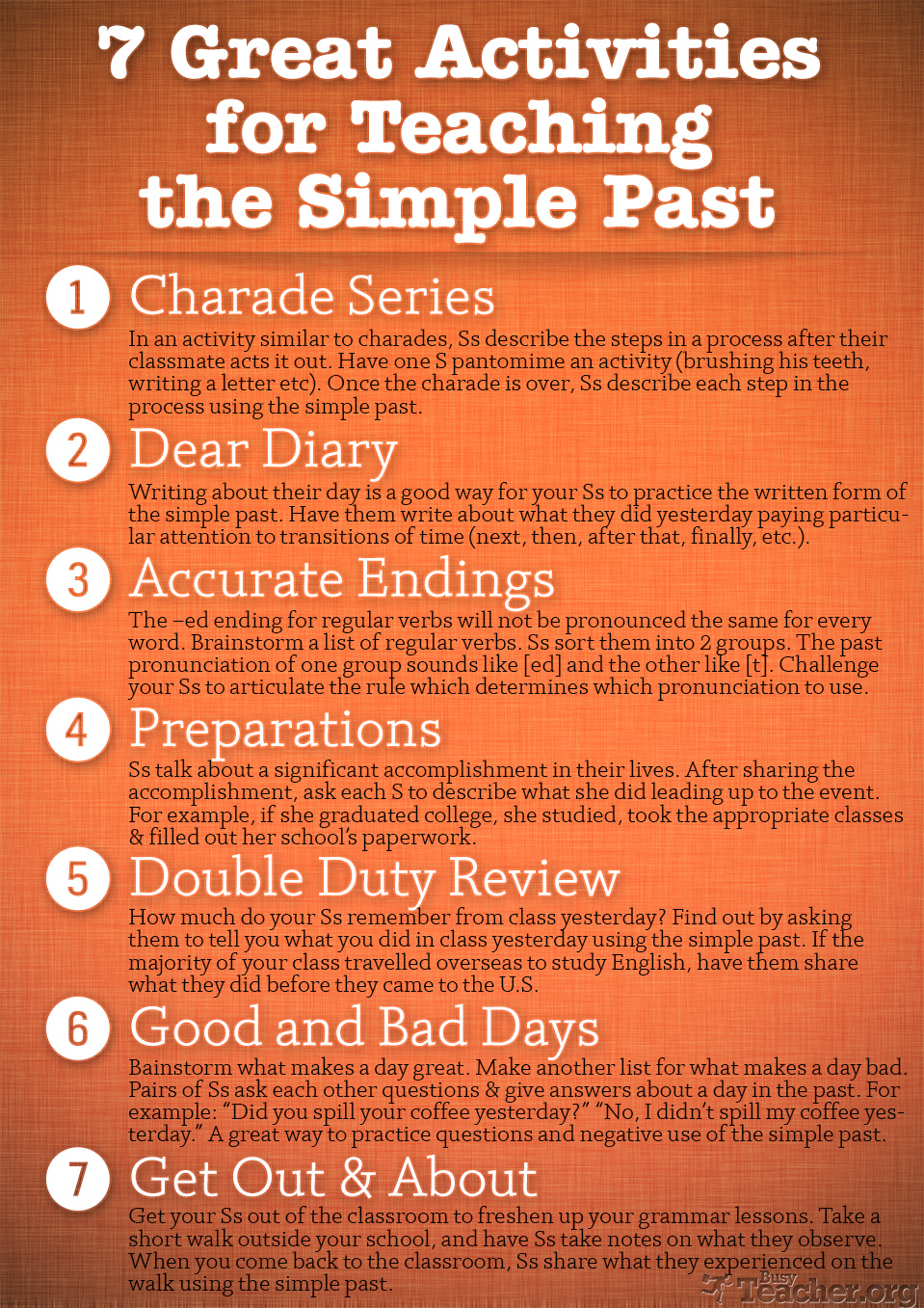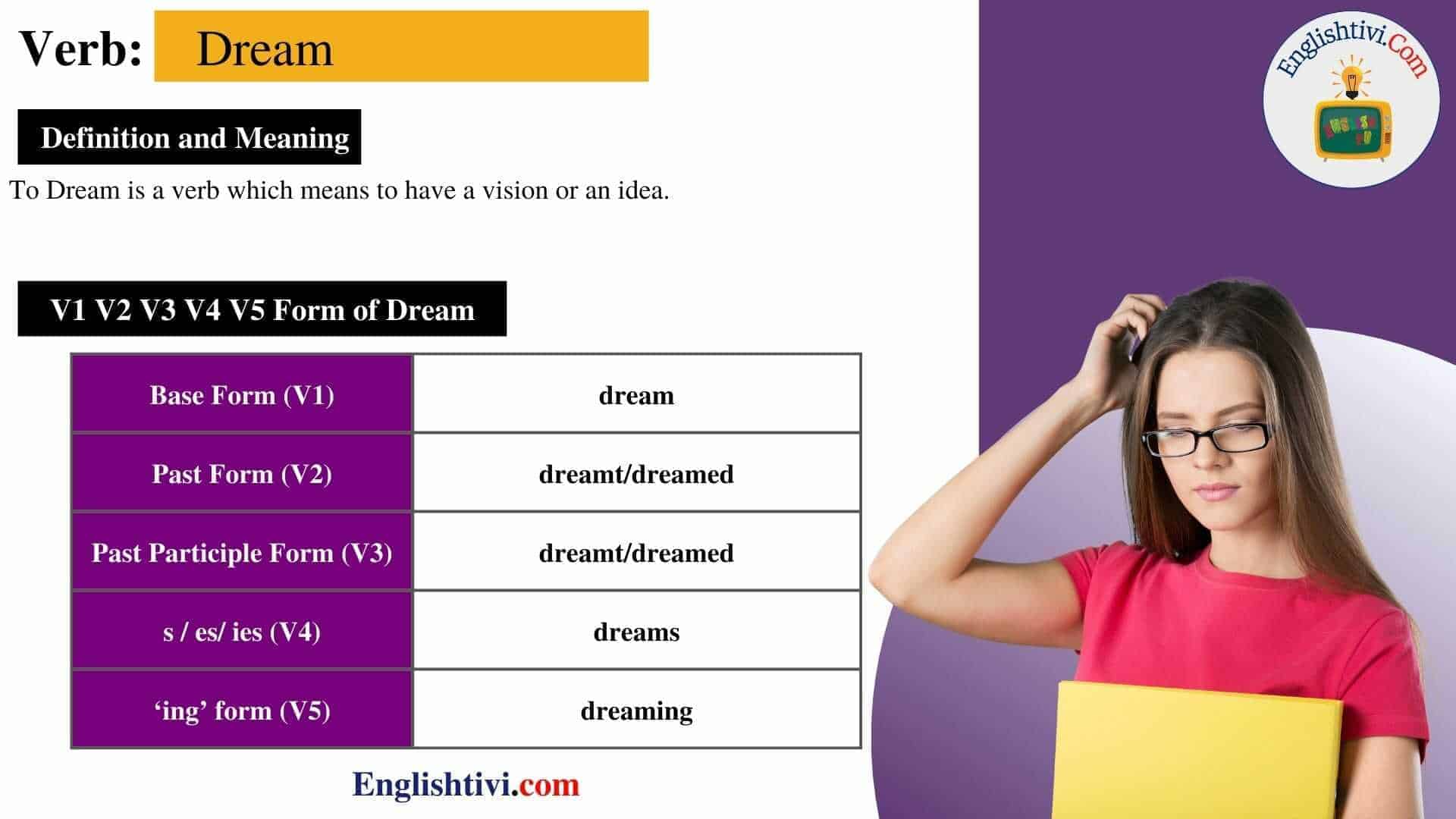Past Tense Of Dream Dreamed or Dreamt? (Pronunciation & Usage)

👍 Past form of have. English Grammar The Past Tense of HAVE · engVid. 20190205
What Is The Past Tense Of Dream? While many other verbs only have one past tense form, the past tense for dream accepts two correct forms: dreamed and dreamt. Although both are accurate, dreamt is more frequently used in British and American English. Compared to Americans, the British frequently use dreamt, albeit not as frequently as dreamed.

Past tense of Verbs 1 Baamboozle Baamboozle The Most Fun Classroom Games!
Both "dreamed" and "dreamt" are acceptable past tense forms of "dream." Dreamed and dreamt are both the past tense and past participle of the verb dream. Dreamt is often considered the British version, but dreamed is actually the most commonly used variant in both British and American English. "Dreamed" or "Dreamt?"

Past Indefinite Tense Question Form Learn english words, English words, Past indefinite tense
The correct plural of the verb "to dream" is actually "dreamed" in most contexts, particularly American English; however, in British English and in the Queen's English, it is also "dreamt," similarly to "spelt" for "spelled.". This is one of the words that actually does follow the rules for the past tense. Adding "-ed.
What's the simple past form? Crossword
Dreams are a "a series of images, events and feelings that happen in your mind while you are asleep". As it turns out, the verb dream, which is the present tense, uses two past verb forms: dreamed and dreamt. Dreamed / dreamt is similar to verbs like smelled / smelt, spelled / spelt, and burned / burnt.

Present perfect or past simple interactive exercise for B1. You can do the exercises online or
Both "dreamed" and "dreamt" serve as the past tense forms of the verb "dream." "Dreamed" is the regular past tense form and is more common in American English. "Dreamt" is the irregular form and preferred in British English. On the other hand, "dreamt" is the irregular form of the past tense and follows a pattern seen in older or more traditional uses of English.

Dream Past Tense, Past Participle, Verb Forms V1 V2 V3 V4 V5
Simple Past Tense He/She/It dreamed or dreamt or drempt (dated). I dreamed or dreamt or drempt (dated). You/We/They dreamed or dreamt or drempt (dated). Past Continuous Tense He/She/It was dreaming. I was dreaming. You/We/They were dreaming. Past Perfect Tense He/She/It had dreamed or dreamt or drempt (dated).

Pass Tense Of Dream USUMMARYI
Dreamed and dreamt are both acceptable past tense forms of dream. Dreamed follows the pattern of regular verbs, ending with "-ed" while dreamt is irregular. Often the irregular, or "strong," form of a word gives way and is replaced by the normalized form, but both dreamt and dreamed are still in use.
-page-002.jpg)
PERFORMANCE APPRAISAL SYSTEM FOR TEACHERS & MASTER TEACHERS (PAST)
Conjugation of "To Dream" The verb "dream" is an irregular verb. (This means that "dream" does not form its simple past tense or its past participle by adding "-ed" or "-d" to the base form.) The Five Forms of "To Dream" "To Dream" in All the Tenses The tables below show how "dream" conjugates in the past, present, and future tenses. Past Tenses
WHAT'S THE PAST FORM? Random wheel
In the UK, "dreamed" and "dreamt" are both acceptable past forms of "to dream." In the US, use "dreamed." (In the US, "dreamt" is so rarely used, it is considered a spelling mistake.) More about "Dreamed" and "Dreamt" In the UK, "dreamed" and "dreamt" can be used as both the simple past tense and the past particle of "to dream." This is not the.

Verbs Archives Page 77 of 104 English Vocabs
What is the difference between dreamed and dreamt?. Dreamed and dreamt are both past tense forms of the verb dream.The main difference between the two is that "dreamt" is the irregular past tense form, while "dreamed" is the regular past tense form. What are regular and irregular verbs? Regular verbs are verbs that follow predictable patterns for their past and present participle forms.

Dream Past Tense Verb Forms, Conjugate DREAM
The past tense (past participle) form of "dream" is "dreamt." The infinitive of the word form is "dream." The present participle form is "dreaming." The past tense form is "dreamt" and past participle form is "dreamt." Understanding verb tenses The general grammar rules that govern past tenses are as follows.

Past Tense Of Dream Dreamed or Dreamt? (Pronunciation & Usage)
02.02.2021 The English verb 'dream' is pronounced as [dri:m]. Related to: irregular verbs, regular verbs. 3 forms of verb dream: Infinitive (dream), Past Simple - (dreamt), Past Participle - (dreamt). Here are the past tense forms of the verb dream 👉 Forms of verb dream in future and past simple and past participle.

ACTIVITY ONE Change the verb to the past form. Brainly.lat
Definition: To Dream Irregular verb: To Dream Verb conjugation: Dream - Dreamt/Dreamed - Dreamt/Dreamed Meaning of 'To Dream' To see visual images while sleeping Conjugation of verb 'Dream' Irregular Verbs Following a Similar Pattern Verbs like: Subscribe to Ad-Free Browsing

time of day worksheets
Dreamt and dreamed are both past tense forms of dream. Dreamt is more common in Britain, while dreamed is more common in other English-speaking countries, including the U.S. Dreamed seems to be more popular than dreamt when talking about sleeping, but when dream has a hopeful, literary sense, dreamt might be used.

Dream V1 V2 V3 V4 V5 Base Form, Past Simple, Past Participle Form of Dream Englishtivi
March 29, 2021 PDF Version dreamed or dreamt or drempt (dated) The past tense of dream is dreamed or dreamt or drempt (dated) Table Of Contents: dreamed or dreamt or drempt (dated) The Forms of Dream Conjugate Dream Dream in Present Simple (Indefinite) Tense Dream in Present Continuous (Progressive) Tense Dream in Present Perfect Tense

😱 Example hope and dream. Hopes And Dreams In A Raisin In The Sun [Essay Example], 1360 words
dream. It is conjugated like: mean. American English favors the past participle and preterit form ending in -ed, while British English more commonly uses the form ending in -t. infinitive: present participle: past participle: (to) dream. dreaming. dream t, dreamed.